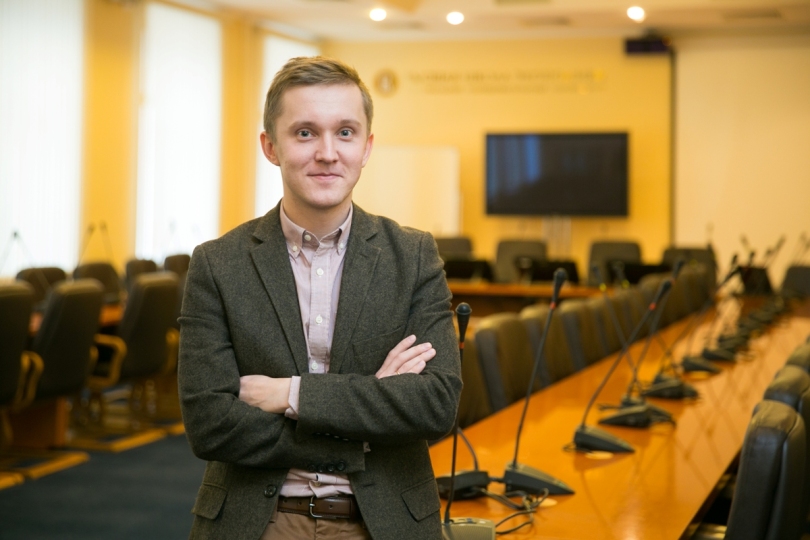HSE Appoints Vice Rector for Student and Alumni Affairs

The Vice Rector position will be taken up by Igor Chirikov (who is also Director of the Centre for Sociology in Higher Education at the Institute of Education). Igor Chirikov spoke with the HSE news service about his main tasks in this new role.
Academic, extracurricular work with students
The main need in this area is to foster the potential of students enrolled in HSE. Every year, HSE is listed as one of Russia’s best universities by enrolment quality, meaning that some of the most talented members of their generation choose to study here. The university should not ignore the potent resource that they, and their creative abilities, represent. It is essential that the activities carried out by our students, teachers and executives all help develop the HSE. This can be achieved through supporting a variety of student initiatives, clubs, associations, and events.
According to various estimates there are between 50 and 90 student associations operating at HSE today. I believe there should be double the number. For example, there are more than a thousand student associations at the University of California, Berkeley, although it has just 1.5 times more students than we do. As an HSE student, I headed the ‘City’ sociological club, which later evolved into the HSE Centre for Institutional Research. I believe that participating in student associations’ activities and independent projects, alongside their studies, helps students develop a feeling of responsibility for their university, as well as skills such as organization, communication etc. And this is also a very important outcome of any student’s time at university.
Another important area for me will be developing and supporting research carried out by students, both as part of research and teaching activities and project-based learning laboratories, as well as in other forms, such as student research competitions. We are planning to organize student expeditions to a number of Russian cities, so that HSE students can experience field studies and get to know more about their country.
Alumni affairs
HSE has already achieved a great deal in this area. There is the HSE Alumni Centre, the HSE Alumni Association, and the HSE Alumni Awards. The next step is to support small special-purpose alumni associations and targeted work with them.
In addition to one big Association, it’s important for the university to support alumni organizations that operate in key areas. For example, many HSE graduates work in banking, and they should have platforms where they can meet up with former classmates and graduates of other faculties in their field, and hear the latest news from HSE that is relevant to them. This has the potential to be a powerful focal point of connection with the university. We also know that some HSE graduates go abroad to take part in PhD programmes. These ‘academic’ graduates make an important contribution to our university’s international reputation. It’s important to maintain communications with them and feed their ideas into the HSE’s international PR strategy. I also believe it is important to foster local communications between teachers and graduates, to help them stay in touch after graduation.
Improving teaching quality
I see two big areas for development in this area. First: improving feedback channels in teaching, both from students (including through the Teaching Quality Assessment and the Best Teachers competition), and from fellow teachers. The plan is to develop the available tools for teachers’ peer review, which will include mutual visits to the colleagues’ classes. This can help the teachers in their professional development and is especially important for those who are just starting out.
The second area is related to improving teaching skills more broadly. HSE has already launched a programme to attract leading international lecturers to conduct master classes and lectures on teaching certain subjects. The aim of these projects is to introduce HSE lecturers to the best teaching practices in their respective fields. The speakers are usually not general teaching professionals lecturing about general teaching methods, but expert teachers in a specific field, who cover the most relevant topics for their colleagues.

